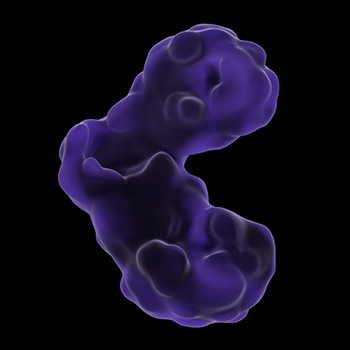Abramsky/Brenner Studies
Experimental Design
-
Female Lewis rats with experimental autoimmune myasthenia gravis (EAMG) induced by injections of Ach-torpedo preparation were treated with alpha-fetoprotein to explore the therapeutic value of AFP
- Control Group: saline (n=26)
- Chronic Phase Group: rhAFP 60µg/kg/day from day 26 post-induction (n=26)
- Sera from the rats were assayed for anti-rat AChR antibodies and the rats were given a clinical severity score 0-5 based upon inspection for muscle weakness
- Dosage chosen to mimic AFP level during remission of autoimmunity in the 2nd half of human pregnancy
Results
-
Statistically significant reductions in disease severity and incidence were observed following rhAFP treatment
- EAMG rats treated with AFP showed normal response to repetitive nerve stimulations, compared to placebo-controlled EAMG rats who showed a decreased response
- Levels of anti-AChR antibodies directed against rat-AChR were lowered by 62% in the treated rats
- In the Chronic Phase Group, the natural course of gradual disease progression did not occur


Buschman Studies
In Vivo Survival Study
- EAMG - the “gold standard” model for MG
- Induced by passive transfer of autoantibodies
- Mouse AFP used to avoid immune response
- Results suggest that chronic treatment with AFP needed to maintain benefits

Kusner Studies
George Washington University
Study Design
Objective
To evaluate the efficacy of ACT-101 in an experimental autoimmune MG rat model.
Experimental Design
- Experimental autoimmune MG was induced in 25 Lewis Female rats with tAChR
- On day 40 after induction, daily intraperitoneal injections of ACT-101 (60 mcg or 1 mg) or equivalent volume of placebo (PBS) was initiated
- After 14 days of treatment, EAMG rats were euthanized and samples were taken
Results Summary
- EAMG rats that received 1 mg of ACT-101 demonstrated lower clinical scores and greater grip strength than control rats
- Complement-activating anti-AChR IgG2 levels were significantly lower in AFP-treated rats while non-complement activating IgG1 levels were not reduced




